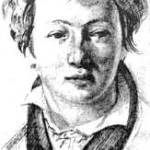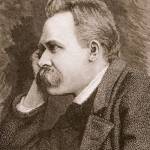To what extent is bad writing style, particularly bad academic style, a result of (a) poor skill, (b) affectation, (c) imitation, or (d) a tool to conceal the meaning and implications of one’s ideas?
Heinrich Heine here lambasts many of his fellow intellectuals:

“Distinguished German philosophers who may accidentally cast a glance over these pages will superciliously shrug their shoulders at the meagreness and incompleteness of all that which I here offer. But they will be kind enough to bear in mind that the little which I say is expressed clearly and intelligibly, whereas their own works, although very profound, unfathomably profound — very deep, stupendously deep — are in the same degree unintelligible. Of what benefit to the people is the grain locked away in the granaries to which they have no key? The masses are famishing for knowledge, and will thank me for the portion of intellectual bread, small though it be, which I honestly share with them. I believe it is not lack of ability that holds back the majority of German scholars from discussing religion and philosophy in proper language. I believe it is a fear of the results of their own studies, which they dare not communicate to the masses. I do not share this fear, for I am not a learned scholar; I, myself, am of the people. I am not one of the seven hundred wise men of Germany. I stand with the great masses at the portals of their wisdom. And if a truth slips through, and if this truth falls in my way, then I write it with pretty letters on paper, and give it to the compositor, who sets it in leaden type and gives it to the printer; the latter prints it, and then it belongs to the whole world.” (Italics added.)
So: The obscurantists are profound, but Heine thinks they are afraid what the masses will think, so they disguise their profundities. Meanwhile, the masses want actual truth and can handle it.
A generation later, Friedrich Nietzsche suggests the opposite:

“Being profound and seeming profound. — Those who know that they are profound strive for clarity. Those who would like to seem profound to the crowd strive for obscurity. For the crowd believes that if it cannot see to the bottom of something it must be profound. It is so timid and dislikes going into the water.”
So: The obscurantists are not profound, and Nietzsche thinks their obscurity is an appearance put on to impress to the crowd. Meanwhile, the crowd does not really want profundity, merely the illusion of feeling like it is in the presence of deep truths.
Who is more correct? Or are Heine and Nietzsche both right and talking about two variant pathologies, both of which have many representatives?
(And is there a whiff of irony in Heine’s jab, in the way that he repeats so exaggeratedly how very unfathomably and stupendously deep the deep thinkers are?)
Sources: Heine, “Preface to Second Edition,” Religion and Philosophy in Germany (1852). Nietzsche, The Gay Science (1882), section 173.
Related: Nietzsche on master and slave moralities, in my Philosophers, Explained series.
Bullshit baffles brains.
Many encountering the philosophy of the German antiliberal reaction conclude its dense, convoluted, obscure, almost unreadable jargon to be nonsense. A few of which I am one think much of it was written not to facilitate understanding but to paralyze it, in order to float through its lethal premises – put forward with uncharacteristic lucidity: the “proof” blurred, the conclusions starkly clear.
“Most of the fundamental ideas of science are essentially simple,” Einstein once said, “and may, as a rule, be expressed in a language comprehensible to everyone.” If this is true for science, I think it is doubly so for philosophy, for, in contrast to the special sciences, philosophy ought to have been a guide for all men and women by identifying the self-evident first principles of their existence. When it becomes so convoluted, murky and abstruse as to befuddle even fellow philosophers I think suspicion is in order.
I knew a guy who took an entire semester course on Hegel’s ‘Phenomenology of Mind’ whose professor confessed that even he didn’t understand it. There is of course the view of Hegel expressed by Schopenhauer (combination of two quotes):
“The height of audacity in serving up pure nonsense, in stringing together senseless and extravagant mazes of words, such as had been only previously known in madhouses, was finally reached in Hegel, and became the instrument of the most barefaced, general mystification that has ever taken place, with a result which will appear fabulous to posterity, as a monument to German stupidity… a pseudo-philosophy paralyzing all mental powers, stifling all real thinking, and, by the most outrageous misuse of language, putting in its place the hollowest, most senseless, thoughtless, and, as is confirmed by its success, most stupefying verbiage…”
Yet in light of the fact that many consider Hegel the direct father of modern totalitarianism right and left perhaps his thought wasn’t so hollow after all.
Among motives for spinning bullshit are two important ones I think: 1./ essentially that the person has nothing to say and wishes to hide that fact, or, 2./ that the person does have something to say, but it is not good, and wishes to hide that.
But if much of writings of the German reaction were obscurantist nonsense, it may well be that the single greatest mistake modern man made was to assume it was harmless nonsense of no consequence in the real world – even as that world was collapsing into one inexplicable horror of collectivism after another from the Gulag to the Holodomor to the Great Terror to the Holocaust to the Great Leap Forward to the Cultural Revolution to the Qey Shibir to the Killing Fields to name a few of the more notable ones. We knew vaguely that these had to do with something called “ideology,” but beyond that did not care to investigate – perhaps because we feared becoming lost in its labyrinthine coils of rationalization.
1) I have done quite a bit of work on this topic: the enlightenment, and the german rationalist, anglo empiricist, and cosmopolitan jewish pseudoscientistic philosophers, and their use of a suite of techniques to allow them to preserve their group evolutionary strategy – and to justify that evolutionary strategy as a universal moral good. This is a more informative criticism than Heine’s egoistic criticism. (And perhaps One of the more Profound Innovations in Comparative Philosophy.)
Those techniques include But are not Limited to:
1) Cultural definition of truth (anglo analytic – false, german conflation of duty, hierarchy and truth – false, jewish contractual and utilitarian ‘truth’ – false.)
2) Loading, framing, conflating. (Suggestion)
3) Overloading and Obscuring (forcing intuitionistic responses)
4) Justification – instead of criticism.
5) Using a seemingly true proposition, that will justify one of the six or seven intuitionistic, genetic, moral biases, then deducing the desired premise from the chosen conclusion – and constructing elaborate overloaded arguments to justify it.
6) Outright deceit (Adorno for example)
7) Status Seeking (Dominance display)
So the problem we face Primary in Philosophical argument, is ** the Prevention of overloading Reason, A suggestion inserting, and Provoking an intuitionistic and non Rational response **
Science Provided the solution to such dishonest argument, But does not Fully Recognize it: A requirement for Operational definitions.
Also Science fails to include the universal Moral Rule One Which Would allow us to replace philosophical justification, with scientific criticism: the only moral principle, the principle upon which our moral intuitions evolved: the prohibition on parasitism as a necessary requirement for cooperation. Or Stated in terms Legal: Prohibition on the involuntary transfer.
Where truthful Testimony Requires the following Due diligence:
i) Internal consistency (logical Testing)
II) external correspondence (Empirical Testing)
iii) Operational definitions (existentially Possible)
iv) falsified
v) and Moral (free of involuntary transfer)
WHERE And, the test of involuntary transfer Requires, much more Precisely, perhaps parsimoniously Ultimately, the following Due diligence:
i) Stated truthfully and Fully informed Testimony
II) Productive (ACCORDING to Subjective value)
iii) Voluntary transfer (subjectively testable)
iv) free of negative externality – by the Same Criteria.
v) and warrantied (That truthful, Productive, Voluntary and external Criteria are met)
Now, as Analytic Philosophy, the above, statements are Pretty ‘clear’ , in the sense That statements are Discreet, and Furthermore, That Those statements Satisfy Their own Criterion.
But That does not mean That the argument is ‘accessible’ by virtue of being Meaningful – Which Requires A bridging narrative Between the existing frame in the Individual’s mind, and the Proposed frame.
So That is WHERE the arts of Communication, psychology and empathy Assist us.
2) accessibility CLARITY
I do my work in Public, like A Potter throwing crockery on A Wheel in A Village Workshop. I do not just publish a book – a finished piece. In no small part because without an academic environment I have no access to informed or public criticism. So doing my work in Public Draws Criticism, and I Actively Disputes start to test my Theories and Criticism Obtain When I need it.
And my experience is That it Takes me over Ten Tries Three months to two years to convert an Innovative argument into something That is accessible and clear Somewhat.
More importantly, I do not AIM for Clarity When I am working through A theory – I am for Operational definitions. If I Discover All the Operational definitions without falsifying my own argument, then Clarity Will emerge from it, Because we are sympathetic All Capable of Testing of Operational statements.
A year ago, people Said my work on A Given topic WAS incomprehensible. Today They have to work at Understanding Those arguments, But They Argue with me About what They do not Fully Understand, or what They Disagree with.
So Clarity is, I think the result of speaking the Truth regardless of Whether it is accessible. And any further attempt at clarity must of necessity, decrease the truth content of an argument. I do not think it is possible to simplify the truth. It is possible however to create incremental bridges to help people understand truthful statements. But that is the job of public intellectuals, and I do not think that it is necessarily the job of philosophers, any more than I think the job of scientists is to explain concepts to the public. If we look throughout history, some of us solve the problem itself, and others of us solve the problem of communicating it. And it is a very unique soul that can do both. And I struggle to think of many of them. So empirically, it seems that truth and education are two separate disciplines, whether we like it or not.
Hmm…
I really do not know his work well, but Heine does have a reputation of being an ironist.